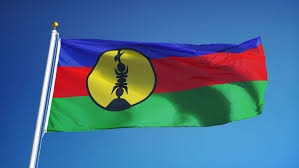Voters stay with France but support for independence increases
For the second time in as many years, voters in New Caledonia have narrowly decided against independence for the French Pacific dependency.
Provisional results issued by the French High Commission in Noumea show 53.26% of New Caledonians voted to remain within the French Republic, while 46.74% voted for independence. Official results for the referendum on self-determination will be gazetted later today by the referendum control commission.
Voters across New Caledonia’s three provinces were asked: ‘Do you want New Caledonia to accede to full sovereignty and become independent?’
Throughout the day, there were long lines at many polling booths across the Pacific territory. The French High Commission reported a participation rate of 85.64%, an increase of more than 4% from a previous referendum held in November 2018.
There can be up to three referendums on the territory’s political status under the Noumea Accord, a 1998 agreement between the French State, anti-independence leaders and the independence coalition Front de Libération Nationale Kanak et Socialiste (FLNKS).
Sunday’s vote saw support for independence rise by 3.4 per cent, with the Yes vote increasing in 31 of 34 municipalities compared to the previous referendum in 2018. The vote for independence was strongest amongst the indigenous Kanak people in the Northern and Loyalty Islands Provinces, but FLNKS leaders welcomed small but significant shifts in areas that have long been bastions of anti-independence sentiment in the Southern Province, such as the capital Noumea and major towns such as Mont Dore, Dumbea and Paita.
As the polls closed, Union Calédonienne President Daniel Goa welcomed the high turnout, calling “on each citizen not to be overwhelmed by emotions and to welcome the result in a peaceful atmosphere.”
President of New Caledonia Thierry Santa, a leader of the anti-independence coalition The Loyalists, welcomed the result and the commitment of New Caledonians to the French Republic.
With the narrow majority voting against independence, the political status quo under the Noumea Accord is maintained, including the multiparty Government of New Caledonia, the provincial assemblies and legislative powers transferred from Paris to New Caledonia’s Congress, even as France retains control of defence, currency, and the judicial system.
Soon after the provisional results were released, French President Emmanuel Macron broadcast a short statement from Paris, saying: “New Caledonians confirmed their wish to keep New Caledonia within France. This is a mark of confidence in the French Republic. I also hear the voice of those who are driven by the desire for independence. We will all build together the New Caledonia of tomorrow.”
Macron called for dialogue between supporters and opponents of independence and said “a third referendum is possible.”
Speaking on television after Macron’s speech was broadcast in New Caledonia, President Santa expressed disappointment there weren’t “more concrete initiatives” from the French State in aftermath of referendum, given the ongoing polarisation in the territory.
Despite their loss, the result has buoyed the independence movement. FLNKS leaders have already stated they want full implementation of the Noumea Accord, suggesting that New Caledonia will continue towards a third referendum in 2022.
